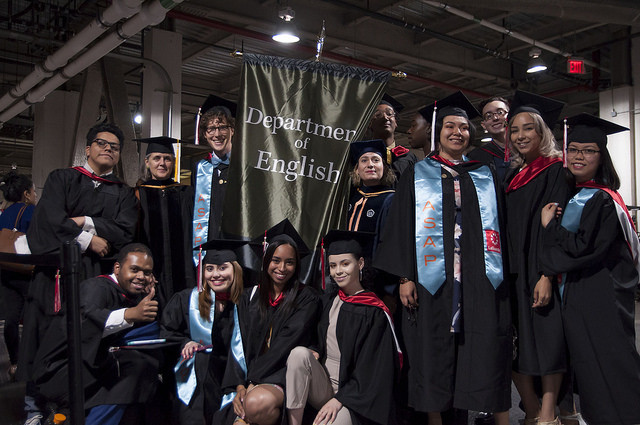
(photo via LaGuardia Community College)
New York’s community college students face long odds of graduating. Only 25 percent of community college students statewide—and just 22 percent in New York City—earn an associate’s degree in three years, an enormous barrier to economic opportunity in a state where a college credential is becoming the floor to career success. There are multiple reasons why so many New Yorkers aren’t making it through college, but one major driver is clear: far too many students entering community colleges in New York are being pushed into remedial education programs.
Recognizing that developmental education is unintentionally derailing students from the path to a degree, both CUNY and SUNY are taking important steps to reform this system from the ground up. Governor Cuomo and the State Legislature should support these essential efforts by setting broad goals for reducing the number of students in remedial programs and funding innovative alternatives at community colleges statewide.
Remedial education has long been viewed as a necessity, since large numbers of students enter the state’s public colleges academically underprepared. At New York’s community colleges, which take all applicants and serve thousands of low-income and first-generation college students each year, most students enter struggling with at least one core subject like math or reading, and the majority are placed into remedial education.
But researchers now know that traditional remedial programs aren’t working. Students entering these programs are far more likely to drop out by the end of their first year, and the vast majority will fail to graduate with a degree—even as studies show that many students could have succeeded by staying out of developmental education entirely.
In recent years, roughly three-quarters of CUNY community college students placed into at least one remedial math, writing, or reading course. Nearly 90 percent of these students will not earn an on-time degree, and six in ten remedial math students will have dropped out within two years. Whatever initial excitement spurred these students into college quickly fades, as some of their peers make progress toward a degree while they remain stuck in classes that feel like high school never ended—all while burning through financial aid.
A better system is possible, and it starts with placing fewer students there in the first place.
In fact, evidence shows that high-stakes placement tests are weak predictors of a student’s potential, and many students who end up in remedial education can succeed in credit-bearing courses. CUNY and SUNY are developing smarter placement algorithms that analyze more than just test scores, and this data-backed reform should expand.
Of course, some underprepared students will require extra support to succeed in college. These students need access to programs that can build academic skills while maintaining momentum toward a degree.
That’s where innovative new approaches can make a difference. Study after study has shown that reimagined alternatives to remedial education programs are working for underprepared students by improving learning outcomes, boosting college completion, and speeding the path to a credential.
For instance, CUNY’s Start program has shown tremendous early results by providing an intensive, single-semester course combined with significant academic and non-academic support—all without using up financial aid. In addition, CUNY is expanding the highly-promising corequisite model, which places students in credit-bearing math and English courses bolstered by weekly support sessions. This approach is proving effective, helping students pass gateway math and English courses at higher rates and even improving college completion. Likewise, SUNY’s Math Pathways program is taking a similar approach to rethink math remediation for underprepared community college students.
As evidence mounts that these new strategies are working, it’s time for New York policymakers to give remedial reform a major boost. First, the State Legislature should pass a law setting broad goals for improving support systems for underprepared students, significantly decreasing the remedial population, and aligning SUNY’s and CUNY’s approaches with best practices nationwide, while leaving the specifics up to education leaders. Policymakers should then fuel progress toward these goals by implementing a new time-limited challenge grant for community colleges, aimed at expanding remedial education reforms quickly and efficiently to campuses statewide.
Traditional remedial education has been just another stumbling block on the road to a college credential. By investing in comprehensive remedial education reform, New York State can lift up underprepared students and put thousands more on track to a brighter economic future.
***
Eli Dvorkin is editorial and policy director of the Center for an Urban Future, a New York–based think tank focused on expanding economic opportunity. On Twitter @WetWax & @nycfuture.
***
Have an op-ed idea or submission for Gotham Gazette? Email This email address is being protected from spambots. You need JavaScript enabled to view it.




